Wesley Trauma Talk Podcast
Situational Awareness Pocket Guide from the Kansas Dept. of Health and Environment. For a copy please contact Wendy O'Hare at the Kansas Dept. of Health and Environment at Wendy.OHare@ks.gov

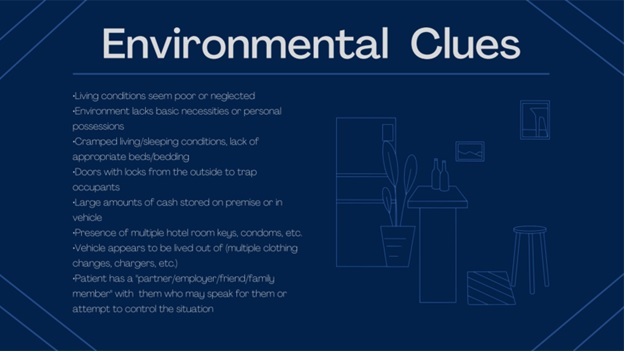
Environmental Clues:
Living conditions seem poor or neglected.
The environment lacks basic necessities or personal possessions
Cramped living/sleeping conditions, lack of appropriate beds/bedding
Doors with locks from the outside to trap occupants
Large amounts of cash stored on-premise or in vehicle
Presence of multiple hotel room keys, condoms, etc.
The vehicle appears to be lived out of (multiple clothing changes, chargers, etc.)
The patient has a "partner/employer/friend/family member" with them who may speak for them or an attempt to control the situation
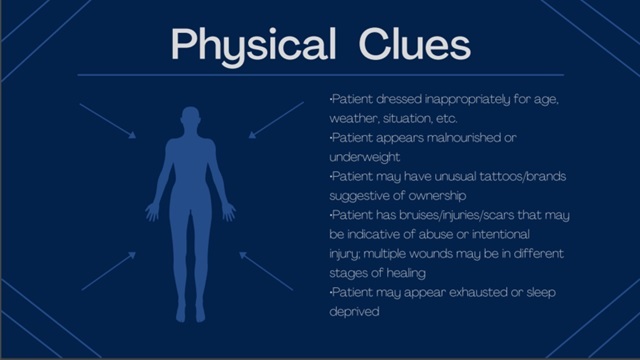
Physicial Clues:
Patient dressed inappropriately for age, weather, situation, etc.
Patient appears malnourished or underweight
Patient may have unusual tattoos/brands suggestive of ownership
Patient has bruises/injuries/scars that may be indicative of abuse or intentional injury; multiple wounds may be in different stages of healing
Patient may appear exhausted or sleep deprived
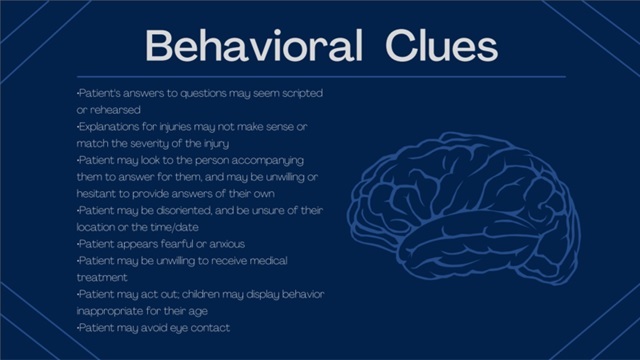
Behavioral Clues:
Patient's answers to questions may seem scripted or rehearsed
Explanations for injuries may not make sense or match the severity of the injury
Patients may look to the person accompanying them to answer for them and or unwilling or hesitant to provide their own answers.
Patient may be disoriented, and be unsure of their location or the time/date
Patient appears fearful or anxious
Patient may be unwilling to receive medical treatment
Patient may act out; children may display behavior inappropriate for their age
Patient may avoid eye contact
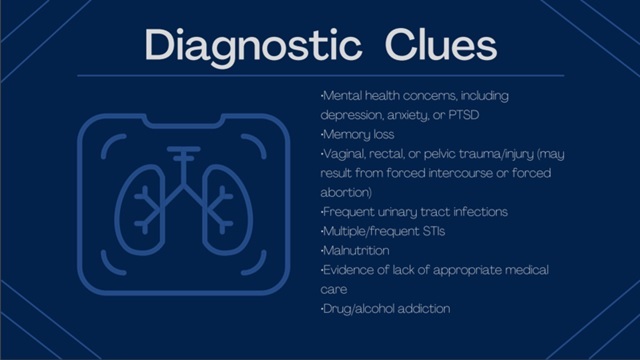
Diagnostic Clues:
Mental health concerns, including depression, anxiety, or PTSD
Memory loss
Vaginal, rectal, or pelvic trauma/injury (may result from forced intercourse or forced abortion)
Frequent urinary tract infections
Multiple/frequent STIs
Malnutrition
Evidence of lack of appropriate medical care
Drug/alcohol addiction
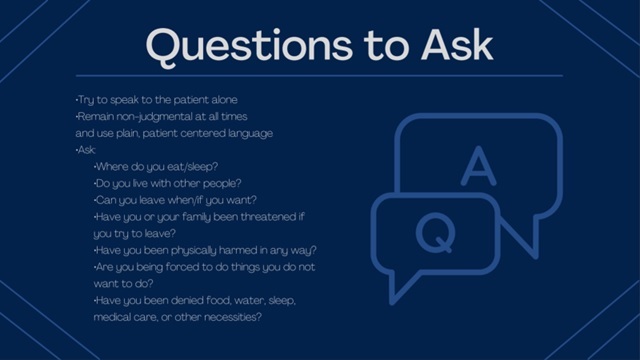
Questions to Ask:
Try to speak to the patient alone
Remain non-judgemental at all times. Use plain, patient-centered language:
Ask:
- Where do you eat/sleep?
- Do you live with other people?
- Can you leave when/if you want?
- Have you been physically harmed in any way?
- Are you being forced to do things you do not want to do?
- Have you been denied food, water, sleep, medical care, or other necessities?
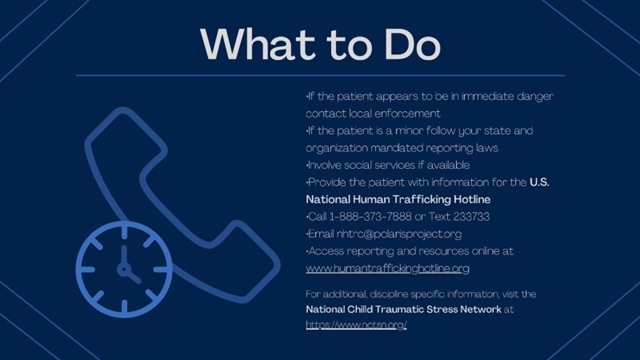
What to do:
If the patient appears to be in immediate danger contact local law enforcement
If the patient is a minor follow your state and organization-mandated reporting laws
Involve social services if available
Provide the patient with information for the U.S. National Human Trafficking Hotline
- Call 1-888-373-7888 Or Text 233733
Email nhtrc@polarisproject.org
Access reporting and resources online at www.humantraffickinghotline.org
For additional, discipline-specific information, visit the National Child Traumatic Stress Network at https://www.nctsn.org
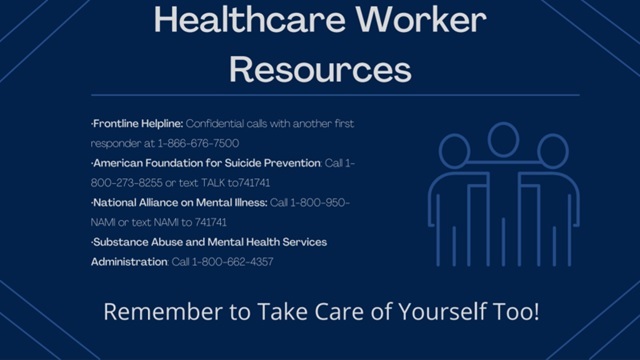
Frontline Helpline: Confidential calls with another first responder at 1-866-676-7500
American Foundation for Suicide Prevention: Call 1-800-273-8255 or txt Talk to 741741
National Alliance on Mental Illness: Call 1-800-950-NAMI or text NAMI to 741741
Substance Abuse and Mental Health Services Administration Call 1-800-662-4357
